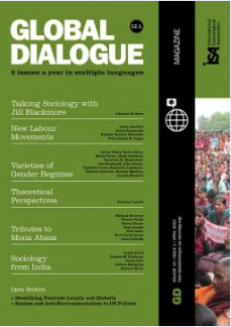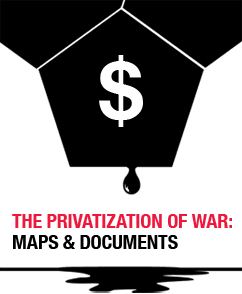Global Dialogue, GD 12.1 - April 2022

Editorial
Universities and science are undergoing far-reaching changes as a result of their marketization or quasi-marketization under neoliberal governance. In this issue of Global Dialogue we take up this topic in our section ‘Talking Sociology.’ Jill Blackmore has been studying the profound restructuring experienced by Australian universities over the last decades. In this interview she elaborates on these restructurings, the forces that drove them, and the effects they have on academic knowledge production and epistemic justice.
The first symposium presents parts of a global research collaboration on diverse workers’ movements. While Dario Azzellini examines the impact of the current pandemic on workers’ movements worldwide, including aspects of gender and race, Sarah Raymundo explores the traces of colonialism in the Philippines and its continued impact on trade union struggles. Hiroaki Richard Watanabe shows how the deregulation and liberalization of the Japanese economy has shaped union organizing and the challenges faced by workers today. Verna Dinah Q. Viajar examines the development of trade unions in Indonesia and their role in the overthrow of the Suharto regime, taking into account political and economic factors.
On the one hand, the transformation of capitalism that has been going on for more than five decades has affected gender regimes in many countries. On the other hand, deep ongoing changes in gender relations, ways of living and the welfare state have challenged the established division of labor, care responsibilities, and norms and values in different areas of social life. Sylvia Walby and Karen Shire, both experts in theoretical and empirical research on the relation between capitalism, crisis and gender, organized a symposium on the varieties of gender regimes. It maps the differences and commonalities in gender relations, arrangements and regimes across different countries and sheds light on international tendencies of our time. It also shows how the varieties of capitalism and the welfare state are strongly interwoven with varying modes of reorganizing and reshaping gender regimes.
The section ‘Theoretical Perspectives’ continues this reflection on gender and society but from a different perspective. Raewyn Connell, pioneer and most renowned representative of men’s studies, retraces this research strand and analyzes how societal and scientific developments led to new perspectives on masculinities.
It is with great sadness that we learned about the passing of Mona Abaza, who died on July 5, 2021. In this issue, colleagues and friends worldwide bid farewell to this exceptional sociologist.
The country focus of this issue, organized by the prominent sociologist and social theorist Sujata Patel gives impressive insight into today’s sociology in India. Established and young scholars have collaborated to this section by sharing their reflections on many important issues, including how their sociological fieldwork is challenged by issues like violence, inequality, or discrimination.
In our ‘Open Section’ we have started a collaboration with ISA’s journal Current Sociology. Ian Carrillo, who works on racism and anti-environmentalism in the USA and Myrna Dawson, who investigates femicide followed our invitation to share their scientific work with the wider academic and non-academic audience of Global Dialogue.
Global Dialogue can be found in multiple languages.
Submissions should be sent to globaldialogue.isa@gmail.com
Links zu diesem Artikel:
Related Content:
The COVID-19 Pandemic and Class Struggle























